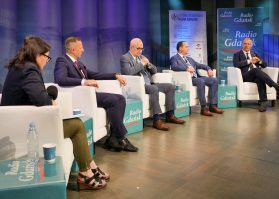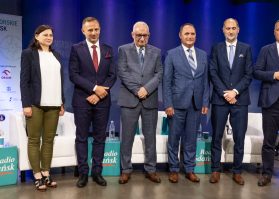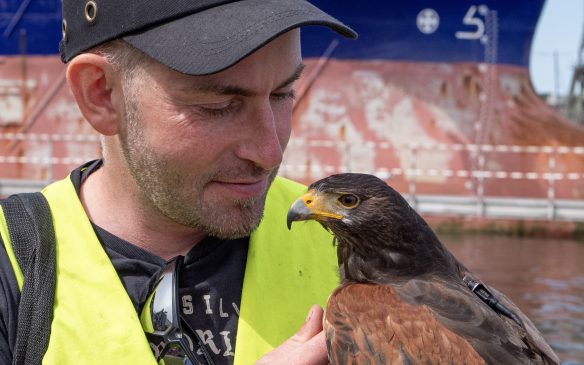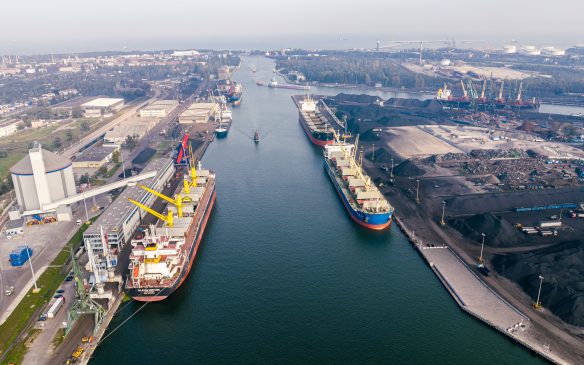Third Radio Gdańsk Maritime Forum: port expansion strengthens Poland’s maritime genes
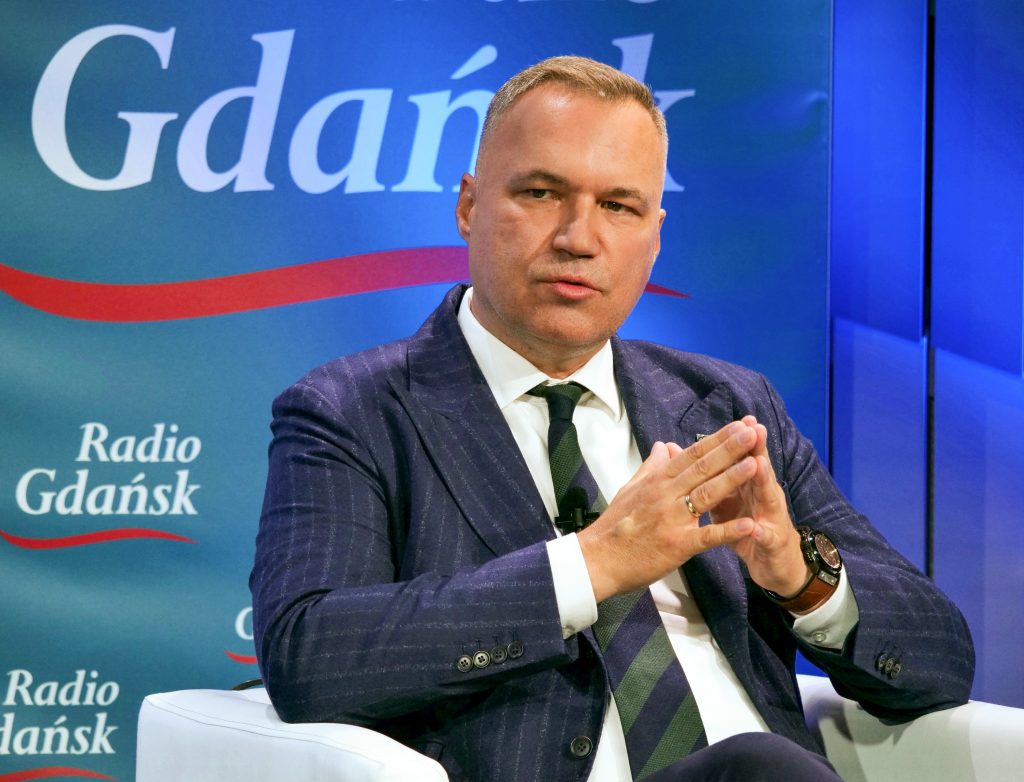
The panel discussion ‘Polish ports – the Red Road and rail and intermodal transport’ was also attended by Jacek Sadaj, president of the Management Board of the Port of Gdynia; Przemysław Sztandera, president of the Management Board of the Pomeranian Special Economic Zone and Krzysztof Urbaś, president of the Szczecin and Świnoujście Seaports Authority.
‘For several years now, we’ve been witnessing a clash of two giants: The United States and China. The US is a military superpower that controls all strategic flows, 80% of which take place along maritime routes. The three largest and most critical global intersections in the world ocean are South-East Asia, the Euro-Atlantic area and the Persian Gulf. We are a country whose access to the world ocean is via the Baltic Sea. It may be small, but it is responsible for handling 10% of all goods, and connects those parts of Europe that were the last to gain access to the world ocean. To the east of us, there is only the enormous landmass of Russia and China. Poland is on the right side, on the side of Western civilisation. Geopolitics has forced all European economies to rethink how they acquire raw materials. Due to certain global processes, we have inevitably become a key country in the region. Polish ports and our economy are facing an opportunity to gain greater independence. Poland’s accession into the European Union opened access to other markets and allowed us to acquire EU funding,’ said Kłos.
The Management Board representative for operations also added that Poland has been Europe’s fastest-developing economy in the last thirty years, and one of the fastest-growing economies in the world. ‘We are a country that has been consistently following a strategy of enormous, civilisational infrastructure investments. We should keep in mind that infrastructure is key to controlling strategic flows. This also applies to seaports.’ In recent years, the Port of Gdańsk, together with the Maritime Office, PKP PLK and other stakeholders, have received more than PLN 6 billion in investment funds. Spending money is never a problem. The problem is capitalising on it. That we have been successful is best demonstrated by the increases in traffic we have been observing. The Port of Gdańsk is Europe’s fastest-growing port. This year saw us reach a volume that puts us among the top ten European ports,’ he added. ‘We will overtake such household names as Barcelona, Valencia and Marseille. Our strategic goal is to be the number one port in the Baltic region, and compete on equal terms with other European ports,’ he added.
Adam Kłos also talked about development plans involving the construction of a Floating Storage Regasification Unit (FSRU) in the Bay of Gdańsk, another fuel handling station at the Naftoport terminal, as well as expanding the Baltic Hub terminal. All of these projects will strengthen Poland’s maritime prospects in the long, strategic term.
Adam Kłos also attended the panel discussion ‘Prospects and challenges for critical infrastructure within the context of ensuring energy security’, which took place as part of the eighth edition of the Kongres 590 event.
‘Because we have seaports, we have our own window into the world, and the state budget annually receives some 40 billion złotys in duty, excise and VAT payments,’ he said. ‘Logistics is for visionaries who have their feet on the ground. Visionaries see decades into the future, while managers can deal with crises and effectively diversify their suppliers. As the Port of Gdańsk, we have acquired the funds, completed our projects without any issues, and have been able to capitalise on their success. But we need to remember that the entire process, from the conceptual phase and acquiring funding to completion, takes 5 to 7 years. So the decisions that enabled us to survive the crisis were made years ago.’
More:
„Porty dały radę, czapki z głów”. Czwarta debata finałowa Forum Morskiego Radia Gdańsk
Adam Kłos: „Jesteśmy jedną z najszybciej rosnących gospodarek na świecie”

